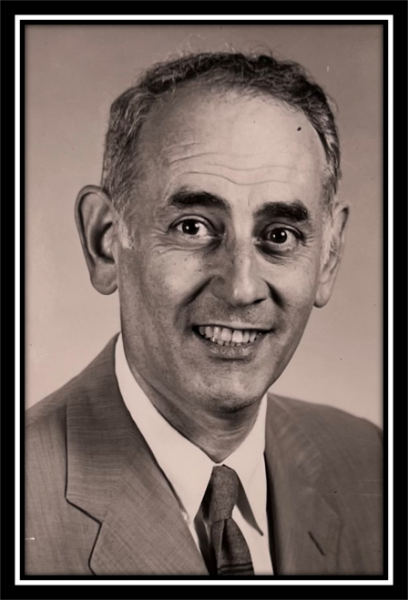Created by a generous anonymous donor, the Richard Lowitt Scholarship Fund offers undergraduate scholarships and supports conference attendance, historical museum visits, research travel, and other educational activities. Undergraduate History majors should contact the Director of Undergraduate Studies, Prof. Stacy A. Cordery, for application information.
The Richard Lowitt Scholarship Fund honors Dr. Lowitt’s distinguished career as a historian who valued the creation and sharing of knowledge at every level.
Donations to this scholarship can be made HERE.
About Dr. Lowitt
Dr. Richard (“Dick”) Lowitt served as Chair of the Iowa State University History Department from 1977 through 1987. An experienced administrator and curriculum innovator, he established the first two doctoral programs in the Department. He worked tirelessly to bring primary sources to Parks Library for the use of those students who found travel prohibitively expensive and was popular among the faculty and students for what one colleague called his “geniality and his kindness to us neophytes.”
The eldest son of Hungarian immigrants, Lowitt was born in New York City on 25 February 1922. His father worked as a dress cutter and his mother was a beautician. Lowitt earned his bachelor’s degree in Specialized Studies in 1943 from the City College of New York and then attended Columbia University, earning his MA in 1945 and his Ph.D. in 1950. During the final years of his doctoral studies, Lowitt took his first teaching position as an assistant professor at the University of Maryland. There, he met John Hopkins University graduate Suzanne Carson. The couple married in 1953 and had two children, Peter and Pamela.
Lowitt’s extensive teaching career took him to several academic institutions between 1953 and 1977, including the University of Rhode Island, Connecticut College, Florida State, and the University of Kentucky. He served short-term appointments at Yale, Brown, Duke, Emory, the University of Colorado, the University of Chattanooga.
In 1977, Lowitt became Chair of the History Department at Iowa State University. He established the first History Ph.D. program, in the History of Science and Technology, in 1980. The following year, he created a second doctoral degree program, in Agricultural History and Rural Studies. Lowitt was active across campus. He joined the ISU Special Collections Advisory group for the Archive of American Agriculture, which focused on collecting and preserving agricultural collections from various politicians and institutions across the United States. He helped to locate and add the James A. (“Tama James”) Wilson Papers, Henry A. Wallace Papers, and the Roswell Garst Papers. Long before the days of digitized sources, Lowitt wanted to bring primary documents to Ames to enhance student learning. He also served on the University’s Book Store Advisory Committee and the Harry S Truman Scholarship Committee. After a rich and productive decade as chair, Lowitt left Iowa State University in 1987. Returning to the classroom, he taught for ten years at the University of Oklahoma, where he earned emeritus status. His final position was as a Regents Professor at the University of Science and Arts of Oklahoma. He retired from that liberal arts school in 2006.
Lowitt was a dedicated researcher and lifelong scholar. He filled hundreds of notecards with his archival findings. Columbia University Press published his first book, A Merchant Prince of The Nineteenth Century: William E. Dodge, in 1952. Three biographies followed: George W. Norris: The Persistence of a Progressive, 1913-1933 (University of Illinois Press, 1971), Bronson M. Cutting: Progressive Politician (University of New Mexico Press, 1992), and From Liberalism to Populism: A Political Biography of Fred Harris (Rowman & Littlefield, 2002). In his retirement, Lowitt published American Outback: The Oklahoma Panhandle in the Twentieth Century (Texas Tech University Press, 2006), “The Enigma of Mike Monroney” in The Chronicles of Oklahoma (2013), “Tilly Merrick, Merchant in a Turbulent Atlantic World” in Atlantic Studies (2014), and, at the age of 94, Twentieth-Century Oklahoma: Reflections on the Forty-Sixth State (University of Oklahoma Press, 2016).
A biographer by training, Lowitt’s work as a historian focused on the nexus of Progressive, Western, political, and agricultural history. Along with his other publications, he co-authored and edited articles and books on the American West and politics in the twentieth century. He was a Guggenheim Fellow, a Senior Fellow for the National Endowment for the Humanities, and received the Muriel Wright Award from the Oklahoma Historical Society twice, in 1993 and again in 2006. In 2012, the Oklahoma Historical Society inducted him into the Oklahoma Historians Hall of Fame. The Society of American Historians elected him as a member and he served as President of the Agricultural History Society from 1991 to 1992, becoming a Fellow of the Society in 1997. He was active in the Organization of American Historians and served on the Journal of American History Board of Editors.
Richard Lowitt died at his home in Concord, Massachusetts, on 23 June 2018, at the age of 96.